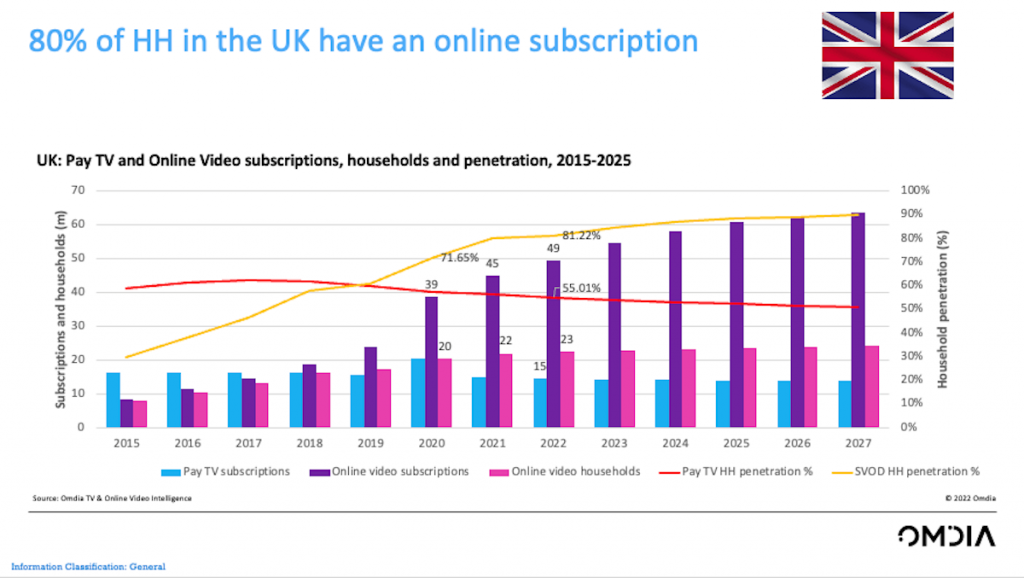Who is responsible for bringing audiences to cinemas? The answer is complex, encompassing venue owners, distributors, filmmakers, actors, film festivals, marketing teams, and film institutes. Anyone involved in the value chain plays an important role in that final decision for a member of the public to opt to buy a ticket. However, the most crucial aspect is our collective organisation as an industry to ensure the effective use of the resources and skills each role contributes. Not only that, but there is a clear overarching strategy that taps into all parts of the industry to ensure interest in independent films.
The UK independent screen sector needs urgent help: between reduced financial support, cinemas struggling to remain open, and an over-reliance on the bigger Hollywood studio films, the key to fixing the problems faced specifically by the independent film sector is a national focus on audience development. Implementing new ways to attract, retain and grow audiences across the U.K.
A recent report by Pact, a membership body representing independent UK producers, highlighted “The U.K.’s independent film sector is struggling and is now at the point of market failure“ The key factors Pact identified were the rising production and talent costs making it harder to have a positive return on investment and also audiences aren’t returning back to cinemas since the pandemic.
The UK Documentary Film Council also recently released an open letter stating “Production funding for independent docs is chronically low and support for development, let alone distribution and exhibition, is practically non-existent. Sustaining careers in these conditions is all but impossible aside for a relatively privileged few, which has direct implications for filmmaker wellbeing and the docs sector’s devastating lack of diversity.”
Tim Richards, CEO of the cinema chain Vue, who is also the outgoing chair of the British Film Institute, has also commented on the current climate in U.K Cinemas stating “Next year is going to be really, very, very tough“. Everyone across the sector agrees things are bad and with an estimated 45% of the UK’s independent cinemas operating at a loss by the end of the 2023/24 financial year – how do we begin to tackle the problem?
Examining the problem
Both Pact and the UK Documentary Film Council rightly highlight the need for better funding mechanisms and support for independent producers. Given our exhibition work at Big Picture Film Club, particularly with our UK-wide partnership with Odeon Cinemas, I believe that the problem is even more fundamental: a lack of a cohesive UK-wide audience development roadmap. 2018 saw a record-breaking 170 million cinema admissions, the most since 1971. However, it’s also important to note that only 3 out of the Top 20 grossing films that year were original films, not remakes, spin-offs, sequels, or reboots.
Since 2014 original films (in this context) have never made up more than 30% of the top 20 Box Office films for that year in the UK. All of those that did were releases from a major Hollywood studio. This underscores a critical issue of the current landscape. Major studios can use their existing IP Movies as their own audience development tool. For instance, each $200 Million+ Marvel film and its associated marketing and brand tie-ins, effectively acts as an advert and an audience development tool for the next set of films – wash and repeat. Because of this successful approach in recent years, many will resonate with the legendary Martin Scorsese in his critique of the dominance of superhero movies. However, even Disney hasn’t had the continued success it thought it would have post-2019’s Avengers: Endgame.
Independent films by their nature do not have this “wash and repeat” process at their disposal. Their focus is largely on original storytelling. Therefore, to support the independent sector, the focus should be on nurturing audiences to discover new films with original stories and to take a chance on watching them in the cinema. Viewed in this context, Disney’s “dominance” and the flailing independent sector is not solely a result of Disney crushing independent cinema, but partly due to a lack of a cohesive audience development vision for the UK independent screen sector. Put simply, we need to make the public care to watch more independent films with original stories at the cinema. And reduce any existing barriers that prevent them from doing so.
Streaming
How has streaming impacted the independent film sector?

Whether it’s SVOD (Subscription Video on Demand), AVOD (Ad-Supported Video On Demand), or FAST (Free Ad-Supported TV), what we can broadly describe as Online Video Subscriptions are here to stay in the short to medium term. The spending in the UK for High-End TV is at record levels. With this investment, streaming platforms have offered us an unprecedented amount of choice at our convenience. This is especially true for key demographics of people for whom regular trips to the cinema – especially for independent films – are neither a priority, due to lack of time / commitments or their current financial situation doesn’t allow for.
However, in an increasingly bloated streaming market, even Netflix has realised the value of having a limited theatrical release of some key titles, underscoring the value of the cinema experience in a streaming world. The cinema experience uniquely immerses you in a way streaming platforms cannot. It liberates you from the decision fatigue of choosing what to watch, allows you to disconnect from home distractions and offers a special communal experience shared with others.
Let’s Get Working
Last year the British Film Institute released its Screen Culture 2033 roadmap, stating its aim was to establish “greater interconnectivity and collaboration within the UK Screen Sector“. The report serves as a welcome initial step towards guiding the UK film industry’s right path. Now, we need to establish firm commitments and proposals that expand on this, especially in audience development and engagement initiatives
What solutions can we implement to address this situation? The degree to which we can implement any solution largely depends on the actions of the Department of Culture, Media & Sport and the resources they allocate to key screen-sector funding bodies. Importantly, we must propose solutions that tackle key issues, offering both immediate remedies and sustainable medium and long-term strategies. Here are our suggestions for consideration:
- A renewed focus on audience development strategy programs that actively encourage work across the value chain: Whilst there is a need for regional and specific development programs. By not engaging the entire value chain in audience development, it also means we as an industry are not utilising the full range of expertise across the different job roles and disciplines. In part due to a culture of siloing
- Reinvestment Tax: Implementing a tax system on ticket sales, akin to France’s ‘Cultural Exception‘ policy, to directly reinvest in audience development for independent cinema. This approach means a portion of every ticket price would support film exhibition and audience development, allowing the success of big Hollywood studio films to directly fund the UK’s independent sector.
- More support for local film festivals: Local film festivals are an established way for local audiences to embrace independent films. However, the decimation of local authority budgets across the UK has meant if Film Festivals do not have access to BFI Funding (via regional Film Hubs) they face huge financial burden to remain sustainable. Access to private funding/sponsorships for film festivals would therefore provide an important lifeline. Tax incentives that allow for local businesses within the region to receive additional tax credits for sponsoring a film festival in their locality should be considered. This approach is crucial, particularly for supporting film festivals and audience development programs outside major cities.
- A new press-linking initiative: Audience development initiatives rarely include or address press engagement. Press and marketing is an essential component of audience development and film promotion. What is needed is greater support for not only “established” outlets but also platforms, websites, podcasts, independent journalists, bloggers etc to have greater access to talent and to attend key events (i.e. premieres, Film Festivals). This could include the establishment of a press database for the BFI. This will allow for new and emerging media outlets and personnel to be made aware of key opportunities.
- A focused commitment to young audiences: Ultimately, any long-term audience development proposal needs to help build a new relationship people have with the cinema. The best way is to ensure young people have access to and value what cinemas can bring. Therefore a greater commitment to working with school-age children in understanding med. A commensurate focus should also support independent films that aim to attract a younger demographic. Into Film, a charity for film in education has done some great work in this area for the last 10 years.
- Direct Support To Independent Cinemas: During the pandemic, the Department of Culture Media and Sport provided a Cultural Recovery Fund. This supported 209 cinemas across England, part of a wider cultural enrichment strategy that could allow the fund to continue in some capacity over the financial year. Bristol’s Watershed Cinema recently announced that local funding for the venue will stop from April 2024. Unfortunately, many independent cinemas will find themselves in this position in the coming year.
- Improved Tech Solutions For Prints & Advertising: From our own experience and those of the distributors we partner with, the cost of delivering movies to the cinema (done via a Digital Cinema Package or DCP) and the cost of licensing via the British Board of Film Classification is prohibitively expensive for smaller releases. This allows less money to be put into the marketing of the film, which in turn affects audience engagement. A startup or private company can potentially develop new technical solutions using funding sources like Innovate UK.
- Better, More Transparent Data: Data collection around Box Office gross has been well-established for some time. However, research and audience sentiment analysis are much less so. In November 2023, BFI Published a report Measuring the Economic Value of Cinema Venues surveying over 2000 cinema goers. Building on this research, to also include groups who don’t actively engage with the cinema is needed on an ongoing basis.
Moving Forward Together
More than anyone single suggested proposal, what is important is there is a collaborative spirit within how different parts of the value chain help develop audiences. This has typically been missing within a siloed film industry. Indeed the work outlined above is more than what can be done by a single organisation.
If the sole focus is simply funding more films, there won’t be an audience to be receptive to those films. An audience development-first approach is necessary for this reason. Exhibition companies like Eleven Fifty Five and We Are Parable, along with independent cinemas, have actively led and trialled their respective initiatives, achieving great work. However, now is the time for a truly comprehensive industry-wide approach. To ensure independent cinemas and films engage a receptive audience and fully realise the value that the independent screen sector brings, proactive measures are necessary.
Also Read: Looking Glass: Report Shows Bullying & Harassment Still Prevalent In The UK’s Film & TV Industry











